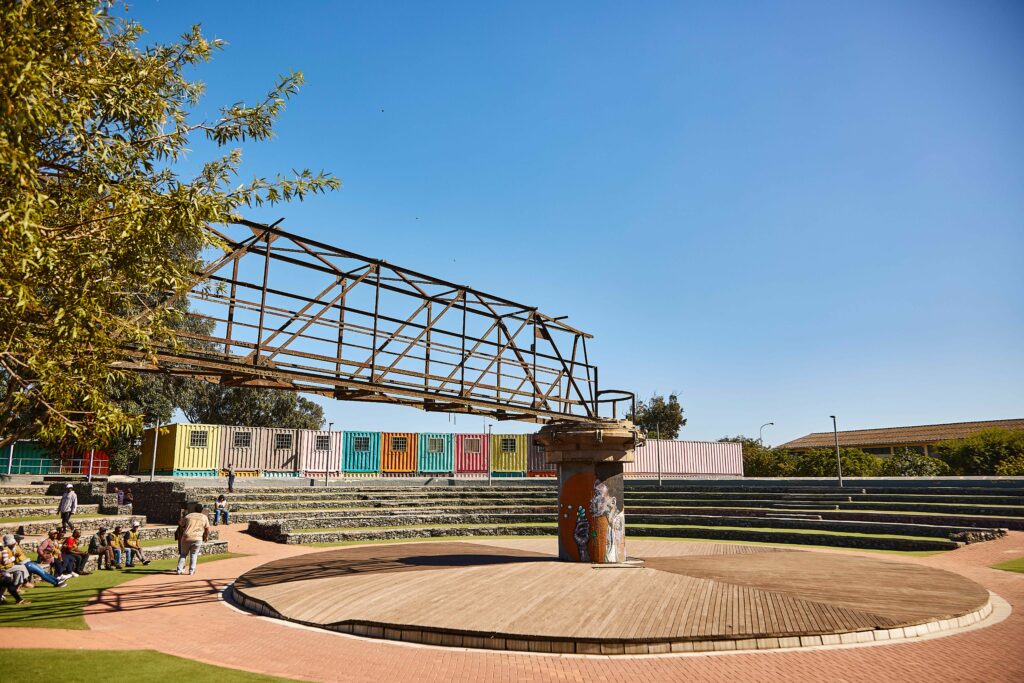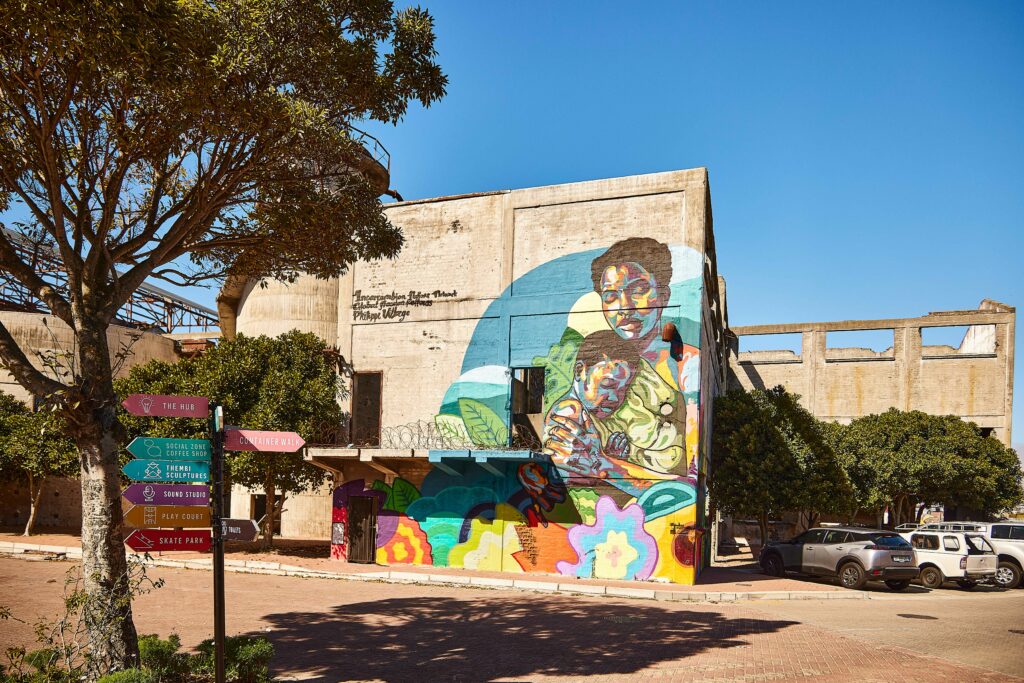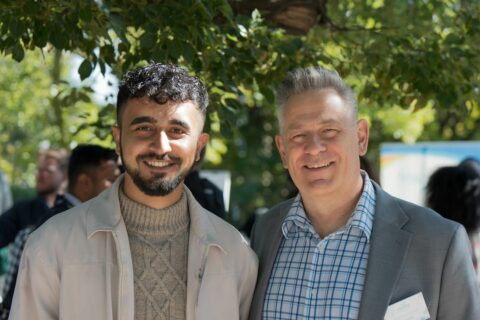Sunday Times Skills PR
Creating Safe Spaces For Engagement
Informal settlements in South Africa – like many townships around the country – are characterised by poverty, high unemployment, crime, violence and poor access to even basic services, including education. The challenges, and there are many, related to education in informal settlements are systemic and affect the quality of life of residents in general. Poverty, unemployment, crime and violence and lack of access to adequate and dignified basic services, all contribute to the way people access education.
Bringing people together
Philippi Village is an integrated, mixed-use development in Cape Town’s Cape Flats Philippi suburb. Its primary focus is to act as a community hub and business catalyst for township communities by providing collaborative and secure workspaces for small and micro business owners, as well as creating employment opportunities and upskilling local community members while providing a vibrant and safe place for social engagement.
Business parks, such as Philippi Village, based in township spaces, should be designed to be multipurpose and used by different people at different times. To succeed, they must be co-created by the users and community to ensure they respond to community needs. This way, they can act as a connector between informal settlements, townships and greater society.
Hubs such as Philippi Village can bring together local government, education organisations and those that can build and shape responses. Although there is still a long way to go at Philippi Village, we are taking the first steps to achieve this.

An on-site early childhood development (ECD) centre caters to young children from the adjacent informal settlement and the greater suburb of Philippi. The centre has partnered with organisations providing training and support to ECD teachers, including The Heart Shine Academy. The academy assists children and youth in Philippi to help process trauma by participating in joyful, expressive curated art, music, dancing and drama activities. The healing journey offered to students includes trauma counselling, life coaching, general social awareness and community building.
Local schools are invited to use the facilities offered at Philippi Village, including a running track and sports fields. Learners and students are provided with a safe space to study, free of charge, and have on-site access to the City of Cape Town Library.
Helping build a better, stronger community
Philippi Village also hosts tenants that run a variety of programmes to help learners meet National Senior Certificate requirements through tuition assistance and mentor support. Other tenants offer personal development support and computer literacy courses.
UCT’s Graduate School of Business’ Solution Hub was established at Philippi Village as part of a deliberate effort to deepen its roots and relevance as an African business school. The hub offers students, alumni, clients and local community entrepreneurs a place to meet and engage, and also provides entrepreneurs with access to resources, corporate partners, mentors, advisory services and partnerships, among others. Facilities at the hub include several fully equipped meeting rooms and a lecture space.
Philippi Village hosts regular open days, career days and holiday programmes to support the children of working parents. Access to technology and coding through CoderDojo, an international network of coding clubs for young people, assists the local community to develop coding skills.
The South African chapter of Women in Tech, a global organisation fostering inclusion, diversity and equity in STEAM (science, technology, engineering, arts and mathematics) education, is helping to build skills and confidence in women to set them up for success.
Recognising that education cannot be a goal on its own, we are working hard to bring together different stakeholders to each play their unique part in addressing the issues that most significantly affect the educational experience of people living in townships and informal settlements.
There is no question that to thrive, people need to live in livable environments. The current situation in informal settlements does not allow people to live the lives they aspire to, including having access to quality education.
Addressing the systemic challenges in informal settlements and townships is a significant task that won’t be achieved overnight. While we cannot address every challenge, understanding where we can make a positive impact is an important first step.






 Sign-up and receive the Business Media MAGS newsletter OR SA Mining newsletter straight to your inbox.
Sign-up and receive the Business Media MAGS newsletter OR SA Mining newsletter straight to your inbox.